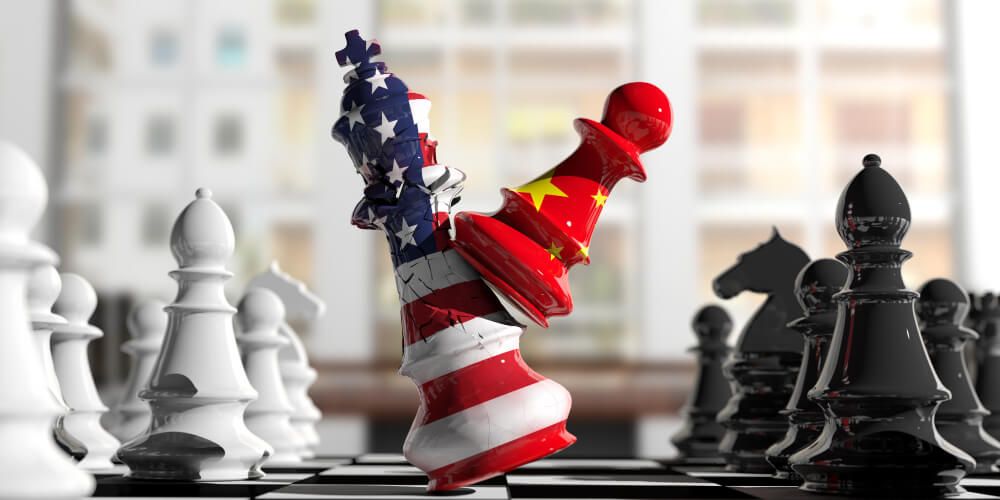In late March 2023, thirteen months after the start of the Russian invasion of Ukraine, Xi Jinping made a state visit to Moscow. Xi and Putin extolled the solidity and the growing scope of their partnership, which “has gone far beyond the bilateral scope and acquired critical importance for the global landscape and the future of humanity”. The two leaders reaffirmed their shared vision of a more “just” and “democratic” multipolar world order, which they had called for in their joint statement of February 4, 2022. They also reiterated their attachment to the Charter of the United Nations, albeit adhering to an interpretation that is visibly contradictory to that of the West. Behind their promotion of the Charter lies a historical bilateral position against the West—led by the United States—, which they accuse of instrumentalizing international law to interfere in the domestic affairs of other states and to expand its hegemony. Sino-Russian alignment thus constitutes an anti-Western axis that seeks to revise the rules-based international order.
Putin’s Russia, an Assertive Anti-Westernism
Russia’s objectives in Ukraine go far beyond that of simply subduing its rebellious neighbor: Moscow is openly fighting against Western domination over European and global affairs. Having been limited to the geopolitical and ideological spheres for many years, the confrontation between Russia and the West is now playing out in the economic, energy, and societal domains, which had previously been relatively unaffected by this rivalry. Still harking back to the Cold War era, Russia continues to see itself as a great power on a par with the United States, but it no longer has the means to match its ambitions. While Russia has taken the miscalculated risk of acting as a battering ram in an attempt to smash the edifice of the post-Cold War international order, it does not appear to be capable of resisting the military (supply of arms to Ukraine) and economic (sanctions) pressure of the “collective West” on its own.
Russia’s objectives in Ukraine go far beyond that of simply subduing its rebellious neighbor: Moscow is openly fighting against Western domination over European and global affairs. Having been limited to the geopolitical and ideological spheres for many years, the confrontation between Russia and the West is now playing out in the economic, energy, and societal domains, which had previously been relatively unaffected by this rivalry. Still harking back to the Cold War era, Russia continues to see itself as a great power on a par with the United States, but it no longer has the means to match its ambitions. While Russia has taken the miscalculated risk of acting as a battering ram in an attempt to smash the edifice of the post-Cold War international order, it does not appear to be capable of resisting the military (supply of arms to Ukraine) and economic (sanctions) pressure of the “collective West” on its own.
Running low on options, Moscow is in desperate need of an economic lifeline from China, and it even hopes that Beijing will offer it military support, including through the supply of arms and munitions. Over the last year, Russia has accelerated the redirection of its economic and energy flows toward Asia, and in particular China. However, it is unlikely that the Chinese market will be sufficient to replace the European market for Russian hydrocarbons: in 2022, China received 15.5 billion cubic meters (bcm) of Russian gas at a discounted rate (compared to 10 bcm a year earlier), while in 2021 the EU imported 140 bcm from Russia. The planned construction of the “Power of Siberia 2” gas pipeline will not make up for this shortfall. In the longer term, the “great turn to the East” could cause Moscow to become overly dependent on the Chinese market and on Chinese technologies and currency. The risks of this growing asymmetry are, however, absent from the Russian public debate, despite Moscow constantly emphasizing the preservation of its sovereignty in its relations with the West.
China and the War in Ukraine
For its part, Chinese leadership has emphasized its supposed “neutrality” ever since Russia first invaded Ukraine, while implicitly supporting Russia by avoiding using the term “invasion”, instead preferring the expression “special military operation”. It has recognized Russia’s “legitimate security concerns” and the United States’ direct responsibility for the “crisis”.
Since the start of the conflict, China has maintained this facade of neutrality by reiterating ad infinitum its commitment to peace talks and a cease-fire, without ever putting forward a proposal in this regard. Beijing wants to be seen as a responsible actor promoting peace, but not at the cost of abandoning its Russian partner. For while the Chinese leadership has no particular desire to see Ukraine become a Russian territory, Moscow is an important partner in the Sino-American rivalry. We can thus recognize that the twelve-point Chinese position on “the political settlement of the Ukraine crisis” published on February 24, 2023, is by no means a “peace plan”, since it simply reiterates general principles and does not put forward any concrete solutions. What is more, it is difficult to imagine Xi Jinping playing the role of impartial mediator, given that he does not acknowledge Russia’s aggression and has not deigned to make contact with his Ukrainian counterpart since the conflict began thirteen months ago. However, supplying arms to Russia is a line that Beijing does not currently appear ready to cross. If Beijing were to do so, this would represent a major shift in Chinese strategy, as it would render its position of neutrality obsolete. We would then enter a new dimension of the conflict, and for the moment this does not appear to be in Beijing’s interest.
Toward a Clear-Headed European Vision of the Sino-Russian Partnership
The West must maintain a critical distance from the rhetoric of a “no limits friendship” between Moscow and Beijing. While there are strong signs of rapprochement in the military and technological fields, this supposed “friendship” is primarily aimed at deterring the West. Moreover, the bilateral partnership has serious limitations, due to the growing asymmetry in favor of Beijing, Moscow’s disappointment at not obtaining greater support from its neighbor, and China’s mistrust of an unpredictable Kremlin.
The attempts of several European leaders to look to Beijing for a solution to the war in Ukraine are not only illusory, but they also feed into Beijing’s discourse, which seeks to present China as a pacifist and constructive actor, all the while supporting Russia. Thus, it is urgent to identify and condemn China’s true position, behind the ambiguities and contradictions of its discourse.
Finally, it is important to hold Beijing to its discourse of neutrality, in order to prevent any Chinese military support for Russia in the Ukrainian conflict.



